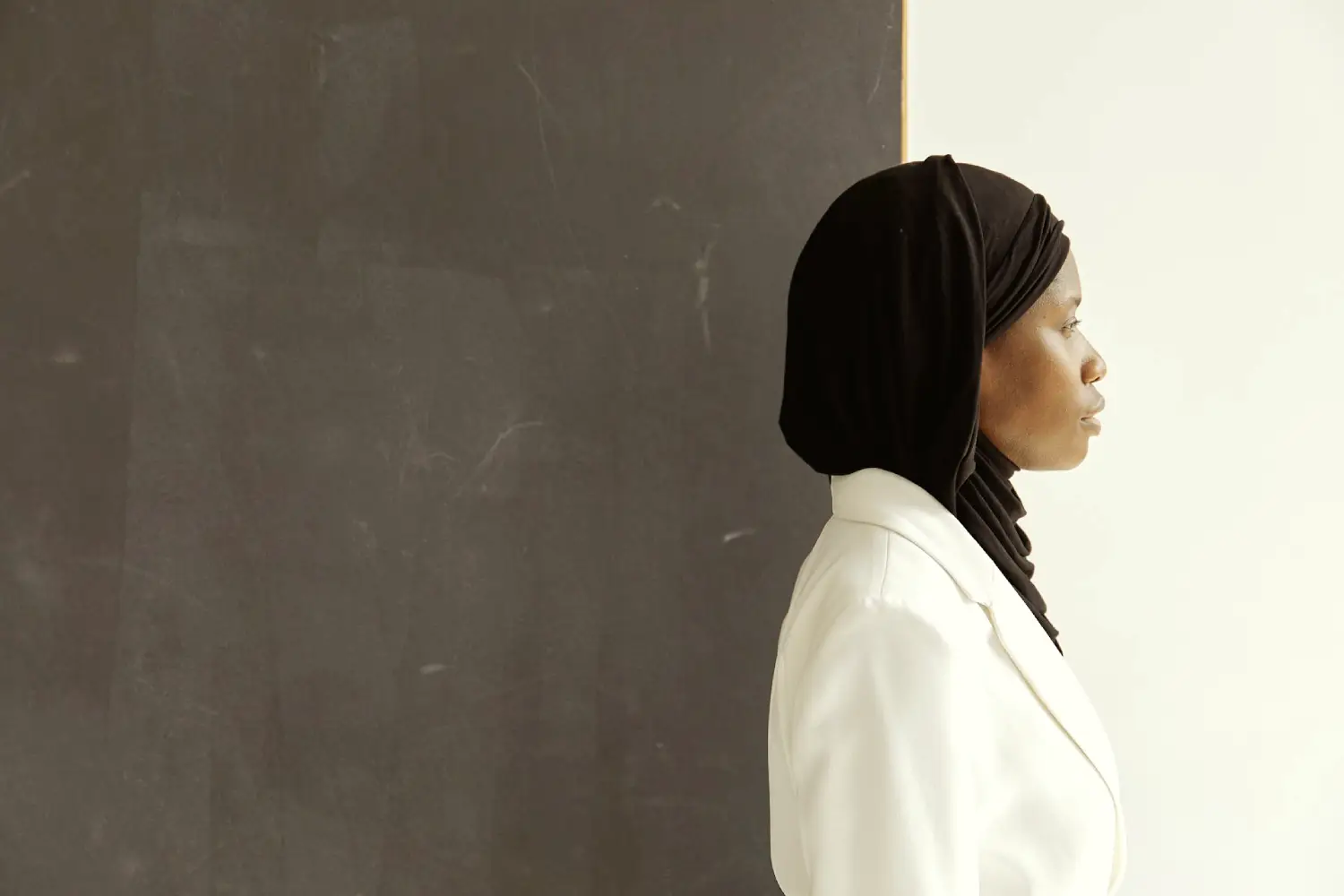Big Hope Miscarriage Support Project
You can view this page in your language.
Big Hope Miscarriage Support is available in English, Somali, Amharic, and Swahili.
Huduma zote zitapatikana katika lugha husika za East African. Wafanyakazi wanaozungumza lugha mbili na wakalimani watahakikisha mawasiliano yako wazi. Msaada wa ufuatiliaji kwa mimba zijazo na usaidizi kwa familia katika maombolezo (pamoja na wenzi na watoto) pia utatolewa. Kikundi cha ushauri cha jamii cha wanawake wa East African kitaongoza utoaji wa huduma ili kuhakikisha uzingatiaji wa kitamaduni.

Our Services
Africare Community Services Inc. offers a range of culturally sensitive services designed specifically to support East African women and families through the experience of miscarriage.
Ushauri Nasaha Unaozingatia Utamaduni
Ushauri wa kitaalamu unaotolewa na wafanyakazi wenye uwezo wa kitamaduni wanaozungumza kwa ufasaha lugha husika za East African.
Laini ya Usaidizi ya Lugha Nyingi ya Saa 24/7
Msaada wa kihisia wa haraka na habari inayotolewa na wataalamu waliofunzwa.
Mtandao wa Usaidizi Rika
Wanawake wa East African wenye uzoefu halisi waliofunzwa kusaidia wengine, na hivyo kuunda mfumo thabiti wa usaidizi unaotegemea jamii.
Elimu ya Jamii na Ufikiaji
Warsha na nyenzo zilizotafsiriwa zilizoundwa kupunguza unyanyapaa na kuongeza uelewa kuhusu kuharibika kwa mimba ndani ya jamii za East African.
Mafunzo kwa Watoa Huduma za Afya
Mafunzo ya uwezo wa kitamaduni kwa wafanyakazi wa afya ili kuboresha uelewa wa mitazamo ya East African kuhusu ujauzito na kupoteza mimba.
Huduma za Usaidizi za Kijumla
Msaada wa kivitendo kama vile usafiri, malezi ya watoto, na usaidizi katika kuuelewa mfumo wa huduma za afya inapowezekana.
KUHARIBIKA KWA MIMBA NI NINI?
Kuharibika kwa mimba ni kupotea kwa mimba bila kutarajiwa kabla ya wiki 20. Hutokea wakati mtoto anapotea mapema sana kabla hajakua na uwezo wa kuishi nje ya tumbo la uzazi. Kuharibika kwa mimba katika hatua za mwanzo za ujauzito ni jambo la kawaida, Nchini Australia mimba 1 kati ya 4 inaaminika kuishia kwa kuharibika.
Types of Miscarriages
Chemical Pregnancy
A very early miscarriage, often occurring before 5 weeks. Many women do not realise they were pregnant.
Threatened Miscarriage
There may be bleeding or cramping, but the pregnancy continues, and the cervix remains closed.
Missed Miscarriage
The baby has stopped developing, but there are no physical signs. Often discovered during a scan.
Recurrent Miscarriage
Defined as three or more miscarriages in a row. It may lead to further medical testing.
Complete Miscarriage
All pregnancy tissue passes naturally, usually ending symptoms of bleeding and cramping.
Incomplete Miscarriage
Some tissue remains in the uterus. Medical treatment is often needed.
Blighted Ovum
A fertilised egg implants but no embryo develops. It is usually detected during an early ultrasound.
Ectopic Pregnancy
A pregnancy that develops outside the uterus, usually in a fallopian tube. This is a medical emergency.
Common Signs and Symptoms of Miscarriage
If you are experiencing any of the following symptoms, please consult your doctor, midwife, or primary healthcare provider as soon as possible.
Vaginal Bleeding
- May range from light spotting to heavy bleeding.
- Bleeding can appear as brown discharge or bright red blood with clots.
Cramping or Pain
- Moderate to severe cramping in the lower abdomen or lower back.
- The pain may feel similar to strong period cramps or come in waves.
Passing Tissue or Clots
- You may notice greyish or pinkish clumps of tissue or fluid passing from the vagina.
- Some women report seeing a sac or solid material.
Pelvic or Lower Back Pain
- Ongoing discomfort or dull aching in the pelvic area or lower back can also be a sign of miscarriage.
Bereavement Support
Miscarriage can bring deep grief, shaped by culture, faith, and family expectations. For many East African and CALD women, this loss is felt silently and profoundly.
Africare offers compassionate bereavement support that is culturally sensitive and available in community languages. We provide one-on-one counselling, safe spaces to share with others, and help in creating personal ways to honour your loss—whether through prayer, rituals, or remembrance.
You don't have to grieve alone. We are here to support you in a way that respects your story and your healing journey.

Miscarriage Is Not Your Fault
Miscarriage is a deeply personal and often painful experience. It's important to understand that it is not your fault. In most cases, the causes of miscarriage are beyond your control—there is nothing you did or didn't do to make it happen.
You are not alone. Many women and families in East African communities experience miscarriage, even if it's not often spoken about. It's okay to grieve. It's okay to ask for help. With time, support, and care, healing is possible.

Every Feeling Is Valid
After a miscarriage, it's normal to experience a wide range of emotions—sadness, anger, confusion, guilt, numbness, relief, or even calm. There is no right or wrong way to feel.
Grief can come and go. You might feel overwhelmed one day and disconnected the next. Miscarriage is a deeply personal experience, and so is your emotional response. However you feel—whether strongly or quietly—is valid. You do not need to explain or justify your emotions to anyone.
Talking to a trusted person, community elder, or counsellor can help you process what you're feeling and remind you that you are not alone.
You Don't Have to Do This Alone
If you are a mother going through a miscarriage, you may feel pressure to stay strong—especially when your children depend on you. But even the strongest women need support. You deserve rest, compassion, and space to grieve.
Many East African women are relied upon by their families and communities to keep going, even in times of deep personal loss. But miscarriage takes not only an emotional and psychological toll—it affects your body too. You don't have to carry this alone. Reaching out for help is a sign of strength, not weakness.

Asking for Help from Your Partner
It's okay to ask your partner for support—especially when you're healing, both physically and emotionally. Let them know what you need in clear and gentle words.
You might say: "I know we're both hurting, but I really need more help with the kids and around the house. My body and mind need time to recover."
Sometimes partners may not know what to do or say. Be specific and don't hesitate to express your needs. Clear communication can make a big difference in how you both navigate this experience together.
Supporting Someone After Miscarriage
Miscarriage is often kept quiet, but your support can make a big difference.
Be kind, respectful, and present. Even one caring person can help someone feel less alone.
Speak from the heart—in your own words, in your own language. There's no perfect way to show you care.
Elders or respected women may have their own stories. With gentle encouragement, they can offer comfort and guidance.

Moving Beyond Miscarriage
Moving beyond miscarriage doesn't mean forgetting—it means finding your own way to heal.
Grief looks different for everyone. Some days may feel heavy, others more calm. You may feel sadness, guilt, anger, or relief. All feelings are valid, and there's no right timeline for healing.
Some women find comfort in prayer or remembrance. Others need time to rest, talk, or reconnect with themselves. Whether or not you choose to try again, your path is yours.
In many East African and CALD communities, miscarriage is often kept private. But you don't have to go through it alone. With the right support, healing is possible.
You are not alone. You are not to blame. And with time, things can feel lighter.
We are here when you are ready.
Acknowledgement
This project is supported by the Department of Health, Disability and Ageing. We sincerely thank them for their contribution.
On-Demand Support
We're here to help. Let us know what you need and we'll respond as soon as possible.